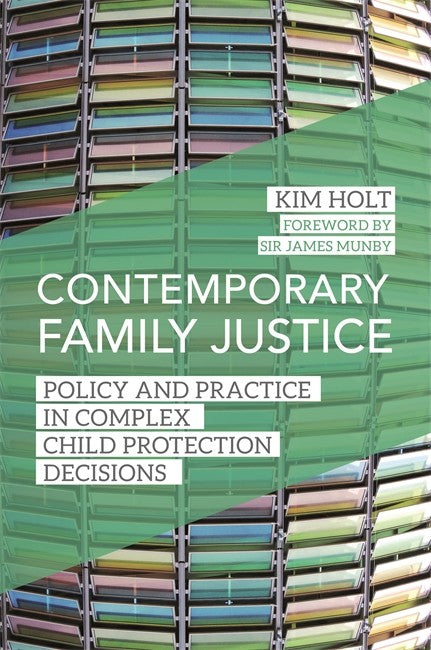1. Introduction: The origin of remote control practice. 2. The remote control approach in the family courts: a dickensian misadventure? 3. Mediation: the holy grail of reforms to working with complex families. 4. Why parents matter: exploring the impact of instrumental approaches to resolving complex situations. 5. Decision making and planning for children: the need for a holistic assessment of the family and an understanding of permanency planning. 6. Challenges for practice: dealing with complex issues that increase risk for children within a family justice system. 7. Findings from research: pre-proceedings practice. 8. Conclusion: What has happened since the Family Justice Review: a brighter future for children and their families?
Request Academic Copy
Please copy the ISBN for submitting review copy form
Description
The family justice review (2010) did little to enhance relationships between family justice practitioners and social workers. The former argued that the proposed changes, in the absence of increased resources for local authorities and changes in social work practices with families (to permit more face to face time with children and improved engagement and assessment of parents), would lead to injustices. This book is seminal: it demonstrates in detail how those injustices are played out.
Holt argues that in every aspect of the new system reduced resources and costs to the state dominate activities. Whether or not that is what the modernization programme intended, Holt argues we now operate in a culture driven by timescales, targets and protocols which in effect paralyses good social work and guardian practices and in which we have lost sight of the central players: the children and parents for whom the system exists.
Holt says this book is a key text for practitioners in family justice: it is more than that. When social workers, lawyers and researchers independently come to the same conclusions about the decline in family justice and the availability of courts as an independent, protective, problem solving forum for the most vulnerable children and families in the face of state activities, it is time for policy makers to listen.

